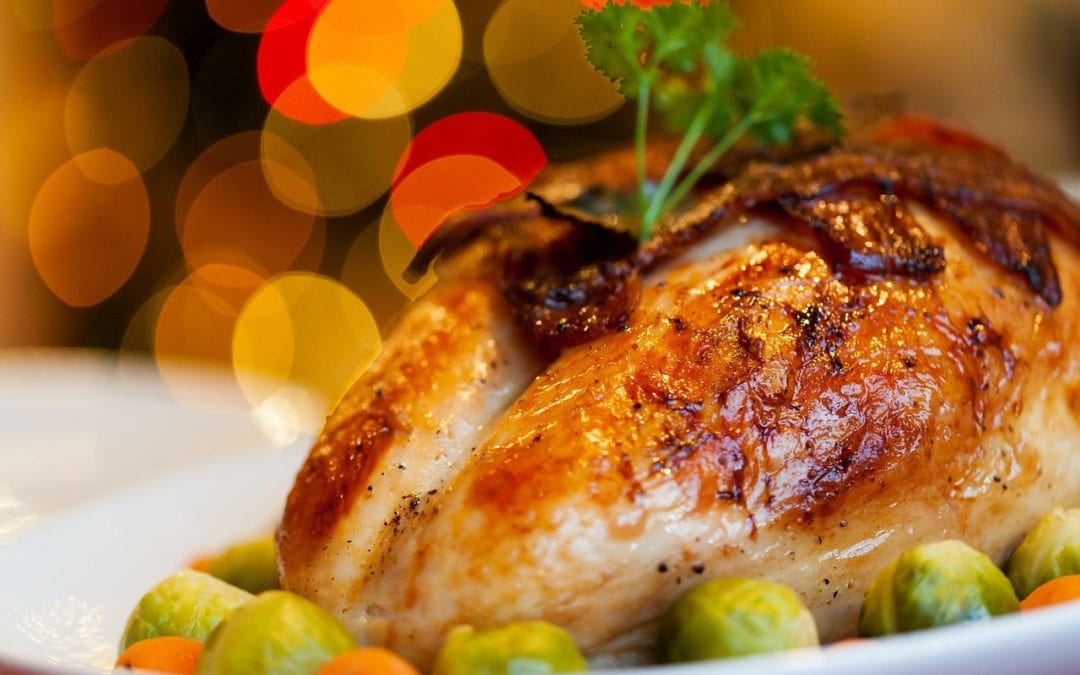Thanksgiving is a time to share with those we love most, and for many pet owners that includes their four-legged family members. Thanksgiving, however, is also a time for indulgence. While it is tempting to include our pets in the holiday festivities, it is important to remember that some Thanksgiving traditions can be harmful.
People food, and particularly rich or excessive amounts of food, can be a big problem for pets during the holiday season. Steer clear of the following Thanksgiving food pet hazards…
Digestive Upset in Pets
Digestive upset in pets after a holiday is a very common occurrence. They may have helped themselves to the garbage can, gobbled down all the extras your houseguests offered, or even snuck a few bites from Uncle Milton’s plate. No matter how it happens, an excess of human food can often mean gastrointestinal upset for pets.
If your pet is experiencing vomiting or diarrhea, please do the following:
- Make sure your pet stays hydrated
- Do not offer treats or table food
- Allow your pet’s stomach to rest by removing access to food for several hours
- Monitor him or her closely for signs of trouble such as a fever or abdominal pain
- Seek veterinary care if your pet’s problems persist or worsen
Pancreatitis in Pets
Inflammation of the pancreas in pets, or pancreatitis, is often triggered by overindulgence at the holidays and can be quite serious. The pancreas normally releases enzymes that aid in the digestion of food. During an episode of pancreatitis, this process does not happen correctly, resulting in illness that can be mild or life threatening. Symptoms of pancreatitis include:
- Vomiting
- Diarrhea
- Abdominal pain
- Decrease/loss of appetite
- Fever
Because the pancreas is responsible for the production of insulin, serious cases of pancreatitis can also result in diabetes due to scarring of the organ.
Pets with mild cases of pancreatitis often respond well to dietary therapy and medications, however animals with more severe illness may require hospitalization, intravenous fluid therapy, and possibly even a feeding tube.
Obesity in Pets
Excess weight in our pets is a serious problem. In fact over half of the pets in the United States are considered overweight or obese. With the average indoor cat needing less than 200 calories per day, and a 50 pound dog needing no more than 900 per day, it is easy to see how Thanksgiving extras can quickly add up.
Pet obesity is no trivial matter. Pets who are overweight are at increased risk for osteoarthritis, type 2 diabetes, high blood pressure, joint injury, heart and respiratory disease, and many forms of cancer. In fact, overweight pets are expected to live on average 2.5 years less than their normal-weight counterparts.
This Thanksgiving fight pet obesity by:
- Limiting or eliminating table scraps fed to your pet
- Making wiser choices–many pets enjoy low calorie options like green beans or baby carrots over Milk Bones
- Take your pet for a walk after Thanksgiving dinner to burn a few calories (good for you, too!)
- Try a spoonful of pumpkin as a low calorie dessert that most pets (including cats) will relish
By thinking of your pet’s health this Thanksgiving, you can help ensure that you get to enjoy many more Thanksgiving dinners with him or her.
Happy holidays from our family to yours!

